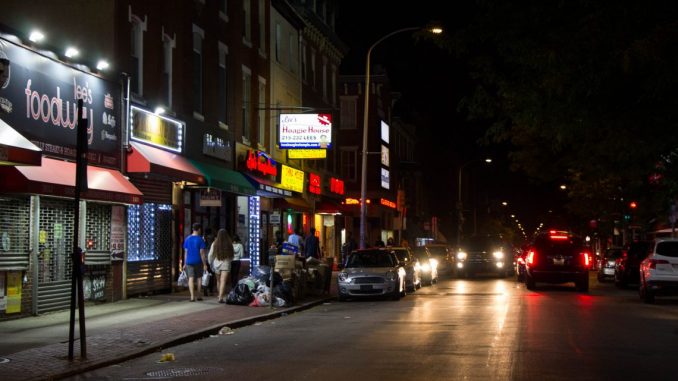
As we enter Black History Month and the eleventh month of the pandemic, it is crucial that students support Black-owned businesses in Philadelphia, not only in February, but year-round.
Almost 44 percent of Philadelphians are Black. The city’s history is rich in African American culture, as Philadelphia is home to the first African Methodist Episcopal church, first Black American history museum and the oldest daily African American newspaper, according to Visit Philadelphia.
Black Americans face abundant and persistent struggles because of institutional racism, or racial inequity within systems of power, like governments, banks and schools.
Employment discrimination, voter discrimination and discriminatory housing policies like redlining and real estate steering are just a few of the consequences of institutional racism.
While redlining, the practice of marking neighborhoods with predominantly Black populations as places to avoid issuing loans, was banned in 1968, its impact has prevented Black families from accruing as much wealth as their white counterparts for generations.
As a result, white families’ average net wealth was seven times higher than Black families’ in 2017, according to a report from the Economic Policy Institute published that year.
Currently, the United States is grappling with the economic and health effects of the COVID-19 pandemic, and small, Black-owned businesses are being disproportionately affected in comparison to businesses owned by other racial and ethnic groups.
By May 2020, 440,000 Black-owned businesses closed due to the pandemic, leaving only 59 percent of their pre-COVID-19 numbers remaining, ABC News reported in June 2020.
These economic struggles did not arise with the pandemic: Black-owned businesses and Black workers have historically experienced harsher effects of economic crises than the rest of the nation. Black unemployment rates during the Great Depression in the 1930s and the Great Recession in 2008 were higher than the national unemployment rates, Vox reported.
Now, amid the COVID-19 pandemic, the government distributed economic relief to businesses unequally. Because many small, Black-owned businesses do not have existing relationships with lenders, and banks are encouraged to process larger loans, the Paycheck Protection loans were more likely to go toward larger clients, The Temple News reported.
Therefore, consumers must fill in the gaps by investing in Black-owned businesses and making this a regular routine after Black History Month and the COVID-19 pandemic have ended.
Eve Matthew, a freshman marketing major, is the designer behind eve., a hand-sewn clothing brand.
Displaying her products on Shopify, an online shopping platform, Matthew likes to work with funky fabrics and interesting cuts as she designs and sells gender-fluid clothing and apparel. The intersection of having a small business and being a Black person in the U.S. puts her in a unique situation, she said.
“Institutionalized racism is insidious, you can’t see it,” Matthew said. “Black-owned businesses can be precious, they can be a very special resource. If you don’t use it, you’re gonna lose it.”
Mesha Hester, a sophomore architecture major, owns Candy Lash Company, an online cosmetic store. She hopes to venture further into the cosmetics world in the near future.
“Historically, it’s harder for Black people to get loans for their businesses,” Hester said. “If I want to become bigger or more global, that’s just based on support [of customers].”
Following centuries of setbacks and prejudice, the odds are stacked against Black business owners, but buying from local Black-owned businesses promotes a sense of community among Philadelphians, said Jordan Manson, a sophomore journalism major.
“It’s so much more than economic growth for Black people,” Manson said. “It’s a chain reaction. It’s inspiring to see someone who looks like you succeed in a world that doesn’t necessarily cater to them.”
Students should support small local Black-owned businesses, like boutiques, hair salons, restaurants and book stores rather than shopping at large corporations like Walmart or Amazon.
Philadelphia has a variety of Black-owned businesses, like Kensington-based Whimsical Gourmet Fruit Pops and Franny Lou’s Porch and North Philadelphia-based Brown Sugar Shack.
Treasure Love, a junior marketing major, supports Black-owned businesses frequently, like buying earrings from Fran’s Hause, an online, Black-owned jewelry and accessory business, she said.
“It’s something that we as citizens can do on our own without the government paying that price tag to fix these societal issues,” Love said.
The U.S. prides itself on its economic success, a “success” that was produced by exploiting cheap labor from people of color and giving them none of the rewards for their efforts. It is time we as a society pay back our debt to those who gave the U.S. the strength and drive it has today, and one way to do this is by supporting Black-owned businesses.
“Small businesses in general, and especially those that are minority-owned, already operate on thin margins, so consistent support and regular customers are especially vital to keeping the business afloat,” Matthew said.



Be the first to comment